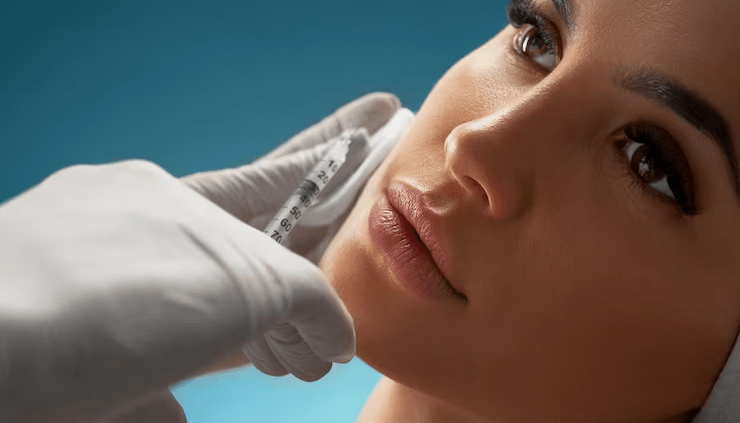Are jawline filler injections safe?
Jawline filler injections have become one of the most popular non-surgical cosmetic procedures for individuals looking to enhance their facial features. But, like any aesthetic treatment, the question arises: Are jawline filler injections safe? Let's explore the Jawline Filler Injections in Dubai procedure.
What Are Jawline Filler Injections?
Jawline filler injections are a non-surgical procedure designed to contour and define the jawline. The treatment involves injecting dermal fillers, typically hyaluronic acid-based, into the jawline area to enhance its shape, structure, and appearance. This treatment can provide a more defined, symmetrical, and youthful jawline without the need for invasive surgery.
How Do Jawline Filler Injections Work?
The process begins with a consultation with a trained professional who will assess your facial structure and goals. During the procedure, the filler is injected into specific areas of the jawline using a fine needle. The substance used, such as hyaluronic acid, adds volume and structure, effectively shaping the jawline. The procedure usually takes around 30 minutes, with minimal downtime.

Are Jawline Filler Injections Safe?
Yes, jawline filler injections are generally considered safe when performed by a skilled and experienced practitioner. Hyaluronic acid, the most common filler used, is a naturally occurring substance in the body, making it safe for injection. Additionally, the procedure is minimally invasive, with a low risk of complications. However, as with any cosmetic treatment, there are risks involved, which is why it is crucial to choose a qualified professional for the procedure.
Benefits
Jawline filler injections offer numerous benefits that make them a popular choice for many individuals. Here are some key advantages:
- Non-surgical procedure: Unlike traditional surgery, jawline fillers provide immediate results with little to no downtime.
- Minimal discomfort: The treatment is relatively painless, and most patients experience only mild discomfort during the procedure.
- Quick recovery: Since there is no surgery involved, recovery time is minimal. Patients can typically resume their daily activities almost immediately.
- Natural-looking results: With precise injection techniques, jawline fillers can provide a subtle and natural-looking enhancement to your facial features.
- Customizable: The treatment can be tailored to meet individual needs, whether you want to add definition, smooth out asymmetry, or restore volume.
Post-Treatment Care
After receiving jawline filler injections, it's essential to follow post-treatment care instructions for the best results. This may include avoiding strenuous activities for a few days, refraining from applying pressure to the treated area, and keeping your face clean and hydrated.
FAQ's
Are jawline filler injections permanent?
No, the results of jawline filler injections are temporary and typically last between 6 to 18 months, depending on the type of filler used.
Do jawline filler injections hurt?
The procedure is minimally painful. Most patients experience slight discomfort, but topical numbing creams and the use of fine needles make the treatment tolerable.
Can I see immediate results after jawline filler injections?
Yes, results are often visible immediately after the procedure, though some swelling may occur, which will subside in a few days.
How long does the jawline filler procedure take?
The procedure typically takes around 30 minutes, with minimal downtime required afterward.
Are there any risks associated with jawline filler injections?
While generally safe, risks include temporary swelling, bruising, or uneven results. Choosing an experienced professional minimizes these risks.
Conclusion
Jawline filler injections are a safe and effective way to enhance the contours of your jawline. The procedure offers minimal downtime and impressive results, making it a popular choice for those looking for non-surgical facial enhancements. However, it’s important to ensure that the procedure is performed by a qualified professional to ensure safety and optimal outcomes. If you’re considering this treatment, consult with an expert to determine whether it’s the right option for you.
What's Your Reaction?
 Like
0
Like
0
 Dislike
0
Dislike
0
 Love
0
Love
0
 Funny
0
Funny
0
 Angry
0
Angry
0
 Sad
0
Sad
0
 Wow
0
Wow
0

















































